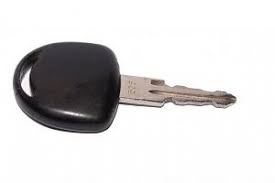 The year is 2020. A young attorney sits at her desk, idly watching the midday crowds stream through the city, passing her storefront. She sighs. The clock ticks. She hasn’t seen a client in weeks, and is starting to fear that she’ll waste away like the rest of her firm. Outside, the light showcasing the firm’s name-Smith and Jones Auto Accident Attorneys-starts to audibly flicker. If she could just meet with a client, if only for an hour, maybe she’d make enough to be able to fix that lamp.
The year is 2020. A young attorney sits at her desk, idly watching the midday crowds stream through the city, passing her storefront. She sighs. The clock ticks. She hasn’t seen a client in weeks, and is starting to fear that she’ll waste away like the rest of her firm. Outside, the light showcasing the firm’s name-Smith and Jones Auto Accident Attorneys-starts to audibly flicker. If she could just meet with a client, if only for an hour, maybe she’d make enough to be able to fix that lamp.
Suddenly, something catches her attention. Cruising down the street is a slick new car, with a coat of black paint so fresh that little twinkles of light glint from it like stars. But then she sees. Her heart starts to race. Her palms sweat. This is what haunts her nightmares. The car drifts past, its driver reading a newspaper.
The idea of driverless cars taking over the road is yet another facet of man vs. machine, a fear that robotics will irreversibly change, and then ultimately dominate, human society. Auto accident lawyers are some of the ones who should fear this the most. Believed to be impervious to human error, machine-controlled cars are often heralded as the next step towards reducing what has become one of America’s leading causes of preventable deaths-car accidents. Consultant firm KPMG issued a report stating that driverless cars may have a huge impact on road safety, reducing vehicular accidents by as much as 80 percent by 2040.
But there’s hope for those poor lawyers. Despite indications of a brighter, safer future, driverless cars are still machines subject to malfunction and design error. In Rooster Teeth Productions’ YouTube video, “A Self-Driving Car from Bing,” driverless cars’ potentially disastrous weaknesses are brought to the forefront. Technology, while always moving forward, is far from being perfected; bugs and malfunctions are still everyday concerns that may require specialized understanding to repair. With greater sophistication comes a greater likelihood of failure. Additionally, driverless cars are predicted to hit the marketplace in 2020, but factors such as cost and consumer suspicion can delay their widespread use. So while driverless cars may take the road by storm, they’ll still share the road with all-too-human controllers for years to come.
In light of future changes, lawyers practicing specifically in the field of automobile accident law may need to adapt. While accidents are likely to still be an unfortunate inevitability, the reasons behind them may shift from human recklessness and negligence to product defect and poor design.
Lawyers may need to become up-to-date on the minutia of mechanics and computer programming and be able to find reputable experts in a growing field. The presence of driverless cars will also herald a wave of new legislation specifically meant to regulate their operation, and lawyers will need to familiarize themselves with the language.
Whether or not driverless cars drive automobile injury lawyers out of business is nebulous at best; the steep learning curve, on the other hand-for the consumers who buy the cars to the lawyers who represent both sides-is a given. Now about those drunk driving defense attorneys … Loree Varella, Rutgers School of Law Newark candidate for a JD degree in May 2016 collaborated with me on this blog. She is Associate Editor of the Rutgers Computer and Technology Law Journal and Managing Research Editor of that publication.

